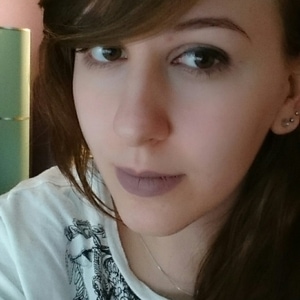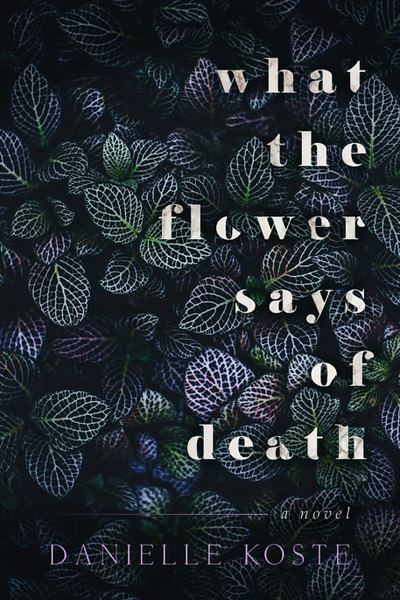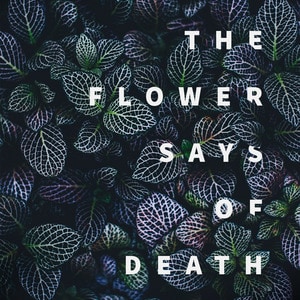The spare room was almost exactly as I left it eight years previous, apart from the addition of a few stacks of boxes filled with old, moth-eaten clothes and books. By the looks of it, the room had gone completely unused since I stopped visiting: dust accumulated on the window sill, pluming in the air as I opened the curtains, and an old chestnut vanity tucked under a white sheet hid behind boxes. The linens on the small, single bed were new though, and the wooden dresser was emptied, dusted, and free for me to use.
I dropped my bag to the floor and sat down on the bed, the springs squeaking under my weight. It wasn’t as comfy as I remembered, but it would do fine. Hopefully. I was always either sleeping too much, or not at all; the bed never made a difference.
I sighed as an overwhelmingly heavy sensation threatened to lure me under the covers and keep me there. I pet a thumb over my bandages, the wound still tender, then got up.
I didn't want to waste my time any longer. I only had a bit of it left, after all.
I unzipped my bag and rummaged for my leather journal. I’d wrapped it up tight in a pair of leggings so my mother wouldn’t find it when I packed. I couldn’t let her see it; she’d tell her shrink and they’d send me to a hospital instead of just my grandparents’.
The journal was my diary, but also my day planner, and my therapist, since I refused to keep a real one for longer than a few weeks. I told it everything through drawings and jotted notes. Most of what was written or doodled inside would have no meaning to any prying eyes.
The incriminating content was my newest installment: my “to-do” list.
I started it the day of my failed suicide attempt, after deciding I'd have to try again. I had already written a goodbye note; it was folded up and tucked into the secret pocket I made in the binding at the back of my journal. I titled it for the day I’d attempt again: January fifth, my eighteenth birthday.
After the note, I started a list of all the things I wanted to do before the date came. None of it was mandatory. Rather, they were simply ideas to keep myself busy as I passed the time. I wanted to try sushi and go to a concert. I wanted to make a snow angel like I did as a kid. I wanted to kiss someone, one last time. When I had a thought, I’d write it down. I hoped the list would keep me from indulging myself and sleeping away the last few months of my decidedly short life.
Along with my list, I started writing down new ways to take my life as they sprung into my head. Most of them were foolish. Some were considerable. I hadn’t decided yet how I wanted to do it this time, so the notes helped me keep track of my options.
I knew it was morbid. I knew it was sick. I knew it was dirty and wrong and dangerous, and that’s why the journal was a secret. That’s why everything was a secret. I didn’t want to get caught this time, especially after being caught the first time. My mother finding me, my wrist butterflied and bloody, was a moment I regretted, but she ended up just delaying the inevitable by coming home early that night.
Nothing changed. I still wanted to die more than ever. I’d have do it right this time.
I decided I would unpack later, or eventually, but for now I had to get myself up and doing something or else I’d root to the room and start growing into the walls like the foreign weed I was. I tucked the worn leather book into the waistline of my jeans, skin to cold, dead skin, then laced my arms into a heavy, wool sweater. The book hid snugly against my hip, concealed under my oversized clothes; with all the meals left skipped or forgotten, I was swimming in my wardrobe lately.
I closed the bedroom door behind me and followed my fingers along the old wallpaper back to the entrance. On the way, I passed the room my grandmother had disappeared into. It seemed she had left, the door remaining ajar. I paused, hearing the monitors again, beeping with heavy, dreadful intention. I placed my palm on the varnished wood of the door, opening the crack a little wider. I saw the crisp sheets of the bed and I froze, then retreated. I only caught my breath again when I was halfway down the stairs.
I stumbled upon my grandmother in the den, doing a cross stitch, her reading glasses balanced on the tip of her nose. She turned her attention to me when I approached the doorway.
“I’m going to take a walk.”
She nodded, requiring no further explanation, and I had to conceal my surprise. I'd forgotten how it was to not undergo an interrogation every time I made a move. Just before leaving for the drive up, my mother made me take a shower with the bathroom door open. The lack of trust stifled me more than I realized, and when my grandmother didn’t question my intentions or motivations, a small weight lifted off my shoulders.
Would she regret the freedom she was allowing me? Would she wonder if she could have changed something, if she'd only kept watch on me like a jail warden? Like my mother?
I ventured to the stables first, but the barn was locked and boarded up. It seemed the horses, sheep, and goats were sold long ago. The upkeep was probably too expensive, and too tedious, when my grandmother was taking care of it all alone. I wasn’t surprised, but found myself disappointed anyway. One of the horses, Marvin, used to nip sweetly at my sweater as I brushed his neck, and I felt a sudden deep regret that I never got to say goodbye to him. Or anyone, really. Last time I was here, I had no idea it was going to be so long before I returned again.
Next, I checked the garden, and I was disappointed a second time. The wrought iron gate was locked with a chain and padlock, both showing the first signs of rust. I climbed up the fence to see inside, but the plants were overgrown and uncared for, so there wasn’t much to see. The garden possibly lasted longer than the animals, but it had still been at least a few years since someone tended to it. Weeds overtook the delicate undergrowth, and the hardier plants engulfed the other, more particular ones.
I continued on, heading for the coast, assuring myself the sea had not changed in its luster since I’d been gone. I hiked up to the cliff where my grandfather and I would often eat sandwich lunches, and though it was more gray and cold than I remembered, this location did not let me down.
I sat on a rock, folding my knees up to my chest and sucking in the salty air like I’d been drowning all this time and was finally catching my breath. The ocean was choppy, peaks of white speckled against the dark green. I retrieved my journal and drew the coast as I saw it, then the branches of the maple trees outside the front of the house as I remembered them from earlier. I wrote: Hang from the thickest branch. Jump from the cliff and let the ocean swallow me. I added to my list: Go horseback riding, smell the Newport violets, swim in the ocean, even though I knew the last one was impossible in the time I had left without risking hypothermia. I scratched out the sentence, changing it: Go swimming in December. Let the cold take you.
After an hour I headed back, not wanting to take too much advantage of the freedom my grandmother allowed me. I cut through the sparse line of woods on the property, taking the same path I used to with my grandfather. After years of neglect, the trail was now colonized by bushes and hanging branches. Because of the overgrowth, I found myself winded once I emerged from the trees to the backyard of the property, fifty yards from the house. I felt out of shape in this environment; New York had broken me like a bridle on a wild horse.
I circled the house to enter back through the front door, but as I turned the corner, a shadow caught my eye. My steps faltered as I checked, catching another glimpse of a dark-haired boy dressed all in black, raking leaves from under the near-naked maple trees.
So far, the property was hauntingly empty and devoid of life, I’d almost forgotten other human beings existed. His presence took me off guard, as did the unwavering stare he sent back at me. I directed my eyes away and hurried forward to the entrance, but snuck a second peek as I closed the door behind me. He had bent down, returning to raking.
My grandmother was in the kitchen making a cup of coffee. As I crossed the threshold, she offered me the mug she held and turned to prepare herself another. I used the mug to warm my chilled fingers, the smell reminding me of quiet, early mornings before heading out with my grandfather.
“Who’s the kid?” I asked as subtle as possible. I was still bewildered by his presence, considering the lack of any other people at the estate, and I think it leaked out with my question.
When I visited as a child, there were always lots of people around. My grandparents had a maid for the house, groundskeepers, and stable workers to help with the animals. Now the place was little more than a graveyard, besides that thin boy who looked like he could have simply broken off from the very trees he raked under.
She spooned a bit of sugar into her drink. “Right. He came by a few days ago offering to help tend to the grass. I’ve given him some money to rake up the leaves, they were becoming a hassle. He’s from town I believe. I can’t remember the name.” She paused her rambling to take a sip from her coffee, then turned towards me with a glint in her gaze. “He’s about your age, I think.”
I scoffed, and she snickered before leaving the room. I let her believe I was embarrassed by her suggestion, but really that was nowhere near the truth. I had laughed because the thought of conversing with another human being, for romantic purposes or otherwise, was the furthest thing from my mind considering my coming plans.
Nonetheless, I shifted over to the kitchen window and sipped on my coffee while spying on him, pulling the orange and red leaves into neat piles, his movements smooth and willowy like the sway of tree branches above him.













Comments (0)
See all